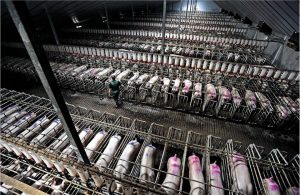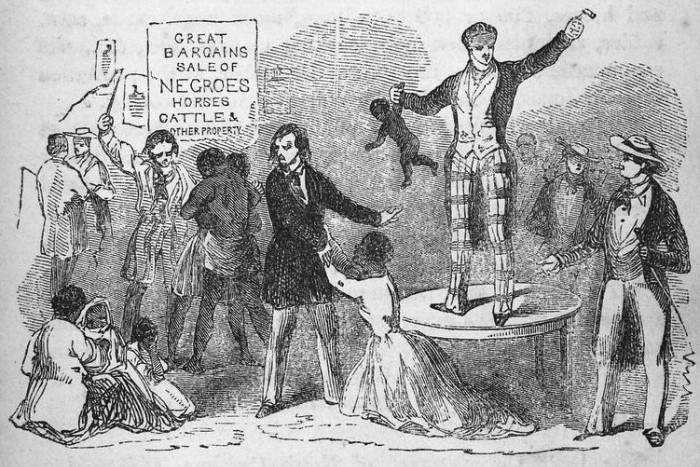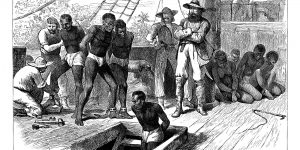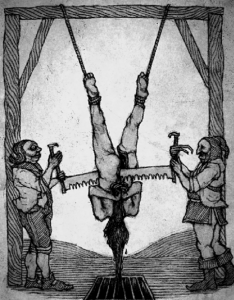A quiet wave of veganism has tacked its roots in pop culture. Veganism, vegetarianism and to a lesser extent, pescetarianism — existing for so long on the fringe — are finally having their moment in the mainstream, with many adopting the practices of eating solely vegetables and/or cutting out red meat, pork, poultry and dairy. Celebrity chefs, actors, athletes and musicians extoll the virtues of going vegan. Vegan challenges, wherein participants attempt to go entirely vegan for an allotted amount of time, are wildly popular. Smoothie bowls run rampant on social media; vegan options have crept onto menus everywhere from five star restaurants to fast food restaurants. (The popular California hamburger chain Fatburger, was recently the first fast food chain to introduce The Impossible Burger, made entirely of plant protein.)

There have been a variety of reasons for this rise of interest in plant-based diets, one of the most prominent of which has been factory farming. The detrimental effects of factory farming, wherein animals like cows and livestock are raised for the sole purpose of consumption, have impacted the environment and the economy, as well as our public health. The use of unnecessary antibiotics and growth hormones to keep animals alive and much heavier than they would be naturally has raised questions about the impact these chemicals have on humans that consume the meat. And the impact factory farming is having on the environment due to creating huge amounts of pollution, toxic waste, and water run-off/land contamination cannot be understated. ‘Sustainability’ snuck into the natural lexicon around food, as questions also arose about the ability to maintain our consumption of meat at such a gargantuan pace: according to the United States Department of Agriculture (USDA), the average American consumes roughly 60 pounds more meat annually than they did 50 years ago, which amounts to almost 20% more calories.
A swell of animal rights activism accompanied the push for veganism/vegetarianism, advocating for it due to the inhumane treatment of animals in factory farms and the moral questionability of raising animals purely for slaughter. Vegans in particular have gained a reputation as staunch animal welfare activists, fighting for the rights of animals as living beings with a consciousness, and therefore a set of inalienable rights. Yet many vegans have a nasty habit of equating factory farming with chattel slavery, utilizing the ‘peculiar institution,’ as it was called in the American South, as a metaphor for how it is inhumane to consider the consciousness and rights of ‘chattel’ – in this case, animals raised for consumption – to be different from the consciousness and rights of humans.

This logic downplays the fact that one of the most horrific aspects of chattel slavery was the very nature of man attempting to ‘own’ his fellow man, and, in a sense, continues to compare Black Americans to animals. While animals do in fact display intelligence and a sense of consciousness, in an era where Black Americans are routinely stereotyped as unintelligent, violent, hulking ‘demons’ and still not seen as human, fighting for the ‘humanity’ or ‘consciousness’ of livestock in a comparison to chattel slavery is a mite ridiculous at best, and erring on perverse at worst. There are a plethora of reasons to fight for veganism and the end of factory farming that don’t include the false equivalence of chattel slavery to factory farming.
Meat, especially of the factory-farmed variety, isn’t necessary for a balanced diet, and the consumption of extra calories from grossly and often chemically engorged animals can actually be bad for you. Demonstrations, public protests, and think pieces likening factory farming to chattel slavery have garnered many vegans the reputation of being out-of-touch, pretentious, racist, and classist. And said whiff of thinly veiled racism and classism has long dogged the majority-white, majority upper class proponents of the veganism movement.
It often seems as if vegans place the rights of animals above Black people and the poor, two categories that are often one and the same. The shaming of individuals who live in food desserts (which are oftentimes low-income neighborhoods without access to a grocery store) for not eating more fruits and vegetables – let alone even higher cost specialty foods like tofu and quinoa – is insulting. And when you consider the state of the food ecosystem for many Black Americans, the equating of factory farming to chattel slavery becomes even more offensive.

Dating back to the Obama administration and Former First Lady Michelle Obama’s Let’s Move! campaign, there has been a national conversation on nutrition and eating habits. The high obesity rates in the United States, lack of access to fresh fruits and vegetables, and low emphasis on exercise, health and wellness has also contributed to a question of the dietary needs of Americans, in particular Black Americans and those living below the poverty line. But proponents of veganism and vegetarianism have repeatedly hit a wall when discussing how attainable a plant-based diet is for the Black and poor people who live nowhere near a grocery store, let alone a produce stand or farmers market, and accusations of racism and classism have dogged the movement. The high cost of fresh fruits and vegetables nationwide and lack of access for the poor and minority groups are indicative of the clear delineations of class and race that impact our current food ecosystem.
 Factory farms are bad for the environment, the animals are treated inhumanely, and meat eating isn’t really seen as much of a viable option for most of humanity moving forward, especially as the human population grows. Logically, there aren’t too many reasons to continue with it, and the introduction of American chattel slavery as a comparison point to factory farming truly feels like a bit of a moot point in the grand scheme of things. It is utterly inexcusable to dismiss the fact that the horrific institution of slavery was a crime against humanity. It is utterly inexcusable to play ‘Oppression Olympics’ with Black lives versus the lives of animals. And it is utterly inexcusable to use slavery and racism, still so resonant in the lives of millions, as an intellectual talking point for animal rights and to argue in favor of the consciousness of animals. If these animals could talk, they might speak solely to their own horrific conditions — and ways of correcting them immediately — and steer clear of the more profoundly immoral horrors that preceded them.
Factory farms are bad for the environment, the animals are treated inhumanely, and meat eating isn’t really seen as much of a viable option for most of humanity moving forward, especially as the human population grows. Logically, there aren’t too many reasons to continue with it, and the introduction of American chattel slavery as a comparison point to factory farming truly feels like a bit of a moot point in the grand scheme of things. It is utterly inexcusable to dismiss the fact that the horrific institution of slavery was a crime against humanity. It is utterly inexcusable to play ‘Oppression Olympics’ with Black lives versus the lives of animals. And it is utterly inexcusable to use slavery and racism, still so resonant in the lives of millions, as an intellectual talking point for animal rights and to argue in favor of the consciousness of animals. If these animals could talk, they might speak solely to their own horrific conditions — and ways of correcting them immediately — and steer clear of the more profoundly immoral horrors that preceded them.
[paypal_donation_button]
Seren Sensei (@seren_sensei) is an activist, writer, cultural critic and new media maker. Focusing on finding the bonds between race, politics, and pop culture, Ms. Sensei creates race-based video content and also released her first book, entitled So, About That… A Year of Contemporary Essays on Race and Pop Culture, in 2015. She was a 2016-2017 fellow for at land’s edge, an art and activism fellowship program in Los Angeles, and her work has been exhibited in the art space human resources la as well as the Vincent Price Art Museum.
Thank you for explaining this. When I first started in animal rights over 10 years ago, I remember my college animal rights group posting these PETA displays that showed animals suffering in cages and comparing it to slavery. I know at some point after that I learned that people were offended by comparisons to either slavery or the holocaust, and it took me a while to accept that.
Until now, I had never had anyone give me a satisfactory answer as to why it was offensive. They would either say, “just because it is” or “it’s offensive to compare humans to animals”. So for a long time I have avoided taking about the comparison simply because it offended people, and put it in the category of “things you don’t say” without understanding why.
I think your explanation makes sense. The fact that black people have historically been compared to animals in a negative way is something I knew, but hadn’t put two and two together. To a vegan, comparing humans to animals is something we do constantly in every context as a kind of thought experiment. We use it to help ourselves better understand things from the animal’s perspective, and to mentally give them personhood and agency.
A common refrain in vegan groups is “what if it had been a human?” as a way to reframe whatever horrific experience the animal had gone through. The train of thought basically goes: these cows were forcibly penetrated and impregnated –> what if it had been a human? –> well then we would call it rape –> so the best word we have for what the cow is experiencing is “rape”. Similarly we thought: these pigs were bought and sold as commodities, put into horrific living conditions, denied any rights (animal welfare laws don’t apply to livestock) and their families separated –> what if it had been a human? –> well then we would call it slavery –> so the best word we can come up with for what the pig is experiencing is “slavery”. When white vegans compare animals to slaves, we are thinking about it from a very different mindset than what the average American would think, and certainly different from how someone with slavery in their heritage would think. I see now, how that can be a blind spot for us.
From a vegan standpoint, humans and animals are equals so when we say factory farms are like slavery, we don’t intend it in a way that brings down black people, but rather a way that lifts up animals. However, black people have every right to interpret it through the lens of their own experiences. When there is a history of white people calling you an animal and using that notion to oppress you, I can see how that makes being compared to an animal an automatic negative. While I do relate to cows as sexual assault survivors, I wouldn’t want to be called a “cow” because that has negative societal connotations for women. Adding to that the feeling that a largely white group is using your history to further their cause takes away agency and rubs salt in a wound that was already too big.
It seems to me that the whole issue has been one of miscommunication, and at least on my part, not listening enough to really understand. On the one hand, there’s white vegans not realizing the context and negative connotations of being compared to animals. And on the other hand, there’s black non vegans not realizing the positive connotations vegans imply when talking about animals. Being the ones bringing this subject to the foreground, the burden should be on vegans to rectify this. I hope you can understand our lapse in judgment as one of ignorance, not malice. For what it’s worth, now that I finally get why it was offensive, I apologize for that PETA display way back when, and the subsequent debates I had with people about the issue.
I do think one major problem we want to address is the way society, and some vegan organizations, have misrepresented veganism as a “whites only upperclass” kind of thing. It’s a tragedy for several reasons. It segregates veganism from entire groups of people who deserve to be invited in. It makes people of color less likely to try veganism, despite the health benefits and monetary benefits (veganism on average will add 5 years to your life and $700/year to your pocket), which is a waste. Diabetes and heart disease, the two health problems veganism is most effective at treating, are more prevalent in black populations than white. It erases the voices of the many vegans who are not white or wealthy, both currently and hisorically. It makes the issues of veganism that effect people of color less visible, which does them a disservice.
Most factory farm workers are people of color, and the way they are treated is abhorrent. Most factory farms are located near underprivileged communities that tend to have more people of color, and those people are the ones who bear the brunt of the pollution and health problems those farms cause. Most major industries that have harmed people (like big pharma or big oil) disproportionately affect black people over white, and animal ag is no exception. Most of the bigwigs who profit off of all this are white men. It is such an intersectional issue, and it is unfortunate that these sides of it rarely get talked about. Hopefully we are at a point in our culture where we can move forward and address both animal rights and civil rights as interrelated issues.
People who place animal rights above human rights are not really vegans, this would be a classic example of speciesism, (Humans are of course, also animals ourselves) and they would be vegan in name only and yes, would be playing the oppression olympics. It should be noted that the animal agriculture industry is also heavily linked to modern slavery, especially in the fishing industry, and it predominantly impacts ethnic minorities. Where one prejudice exists, often others can be found.
The problem is, humans are animals. All of us, black, indigenous, asian, white, latino, whatever race. People seem so easily offended when they are ‘compared to animals’ but fail to recognise that humans are indeed animals themselves, every single one of us no matter who we are. It is presumption to say animals possess a lower or incomparable consciousness to humans when we do not even fully understand consciousness itself, we only know that all with a central nervous system and a brain have the potential for consciousness. The same reason human rights should exist, are the same reason animal rights must develop. If we start to base this of a certain level of consciousness, where do we draw the line? ‘This logic downplays the fact that one of the most horrific aspects of chattel slavery was the very nature of man attempting to ‘own’ his fellow man’, this is exactly the most horrific aspect of our enslavement of other beings. It isn’t downplaying by any means. Both dehumanisation and speciesism are issues of prejudice and domination, they are two sides of the same coin. During times of slavery, it was presumed that blacks were as conscious as animals, and therefore could be treated as livestock (domesticated animals). Our treatment of fellow beings as objects to be owned is precisely the issue. To me it is much more perverse that humans continue to assert that we are somehow, against all evidence, not animals ourselves.
Hey, Seren! This is a valid and poignant critique of the vegan community’s mainstream activism. In my experience, it was through going vegan that my eyes really opened up to the intersectionality of systemic oppressions, and how, although shouldn’t be compared or pitted up against in the “oppression olympics”, these systems are connected. It’s actually though pro-intersectional vegans’ YT channels like Dr. Amy Breeze Harper, AbantuMay, and (although she’s white) A Privileged Vegan that I discovered your channel! I’ve really appreciated your work over the past year or so. I got a copy of your book, watched every upload (I especially love the Hidden Figures) and almost every live stream and have been challenged by your thoughts and view-points, so I want to thank you for that. However, I recently found out that I was blocked from your channel I think due to one of the #Bheezebakes around the whole BM fiasco. I just wanted to reach out because I was surprisingly hurt by the situation because I valued the space you created for us radical black folk trying to challenge the system, and also to encourage you on your veg journey! I know it can be daunting to add yet ANOTHER issue on your plate for systems to fight against, but speciesism has had devastating effects on both human and non-human animals for decades, so I hope you consider making changes to make a difference. Be blessed and I wish you the best!
I was ignorant but know I’m enlightened! Respect Seren sensei .
I think sensei is fantastic!!